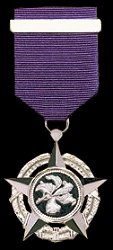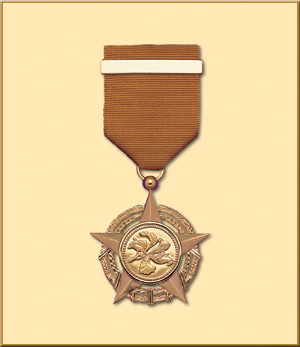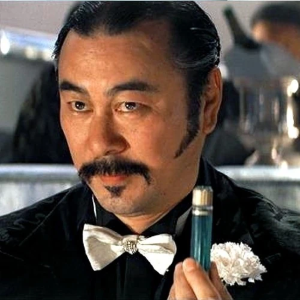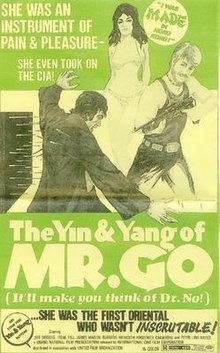
Oliver Burgess Meredith was an American actor and filmmaker whose career encompassed radio, theater, film, and television.

Project A is a 1983 Hong Kong martial arts action comedy film starring and directed by Jackie Chan, who also wrote the screenplay with Edward Tang, who produced with Leonard Ho and Raymond Chow. The film co-stars Sammo Hung and Yuen Biao. Project A was released theatrically in Hong Kong on December 22, 1983.

Nury Vittachi is a science-fiction writer based in Hong Kong. He has written the novel series The Feng Shui Detective, as well as non-fiction works and novels for children.

Philip Ahn was an American actor and activist of Korean descent. With over 180 film and television credits between 1935 and 1978, he was one of the most recognizable and prolific Asian-American character actors of his time. He is widely regarded as the first Korean American film actor in Hollywood. He is not to be confused with Philson Ahn, another screen actor who broke into films in the late 1930s; Philson was Philip's younger brother.

Daniel Wu Neh-Tsu is an American-born and raised Hong Kong actor, director, producer, and racing driver, born in California, United States. He is known as a "flexible and distinctive" leading actor in the Chinese language film industry. Since his film debut in 1998, he has been featured in over 60 films. He also starred in the AMC martial arts drama series Into the Badlands and the Disney+ wuxia action comedy American Born Chinese.

Michael Wong Kong Leong, also known mononymously by his Chinese name Guang Liang, is a Malaysian Chinese singer and composer who has sung and written many love-themed ballads and love songs, many of which have high popularity. He is popularly known in the Mandopop scene as the "Prince of Love Songs" (情歌王子).
Robert Oliver Ragland was an American film score composer, best known for his soundtracks to numerous genre films ranging from blaxploitation (Abby), to horror, to monster movies, to thrillers and action films. Throughout his career, he worked with cult filmmakers including William Girdler, Menahem Golan, Larry Cohen, and J. Lee Thompson.

The Silver Bauhinia Star is the second Bauhinia Star rank in the honours system of Hong Kong, awarded to people who have taken a leading part in public affairs or voluntary work over a long period. The award was created in 1997 to replace the British honours system after the transfer of sovereignty to People's Republic of China and the establishment of the Hong Kong Special Administrative Region.

The Bronze Bauhinia Star is the lowest rank in Order of the Bauhinia Star in Hong Kong, created in 1997 to replace the British honours system of the Order of the British Empire after the transfer of sovereignty to People's Republic of China and the establishment of the Hong Kong Special Administrative Region (HKSAR).
Snow.Wolf.Lake is Hong Kong's first modern musical. Jacky Cheung, a cantopop artist, was the artistic director of the show and also played character Wolf in the musical. The running time of the musical is about three hours. It has two versions: Cantonese and Mandarin. The title combines the Chinese name of the two main characters, "Wolf", the male protagonist, and "Snow", the female protagonist. "Lake" refers to a plot related element.

The World of Suzie Wong is a 1960 British-American romantic drama film directed by Richard Quine and starring William Holden and Nancy Kwan. The screenplay by John Patrick was adapted from the 1958 stage play by Paul Osborn, which was based on the 1957 novel of the same title by Richard Mason.

Irene Tsu is an actress who started in the film Flower Drum Song in 1961. She was featured in an advertising campaign in the 1960s. She speaks English and three varieties of Chinese.
The Hong Kong Humanity Award is co-organized by the Hong Kong Red Cross and Radio Television Hong Kong. It is the first of its kind in Hong Kong aims to give tribute to those live up to and put into practice the spirit of humanity.
The Brothers is a 1979 Hong Kong action crime-drama film directed by Hua Shan, written by Lam Chin Wai and Yuen Cheung, and produced by Runme Shaw under the Shaw Brothers Studio. The film stars Tony Liu, Danny Lee Sau-Yin, Chau Li Chuan, Ku Feng, and Nam Hung. It is a remake of Indian action crime-drama film Deewaar (1975), written by Salim–Javed. In turn, The Brothers inspired John Woo's A Better Tomorrow and played a key role in the creation of the heroic bloodshed crime genre of 1980s Hong Kong action cinema.

Roy Chiao was a Hong Kong actor, most notable in the United States for playing the minor villain Lao Che in the 1984 movie Indiana Jones and the Temple of Doom.

Wildflower is the twelfth studio album by Hong Kong singer Sandy Lam, released by Stardust Records in December 1991. As part of the "unplugged" craze in the Cantopop scene, it is widely considered her signature album.
Yin and yang are concepts in Chinese philosophy, used to describe how opposite or contrary forces are actually complementary.

The Love Eterne is a 1963 Hong Kong musical film of the Huangmei opera genre directed by Li Han Hsiang. An adaptation of the classic Chinese story "Butterfly Lovers", it tells of the doomed romance between the male Liang Shanbo and the cross-dressed female Zhu Yingtai.
Chan Yat Ling, known in the West as Isabel Chan or Yat Ling Chan, is a Malaysian Chinese actress based in Hong Kong. Chan Yat Ling is the Cantonese equivalent of her Mandarin Chinese name. She has been active as a Cantonese language performer since 1998 and has taken part in films, radio, television and advertising work. She was featured in several films directed by Pang Ho-Cheung, including the romantic comedy, Love in a Puff.













